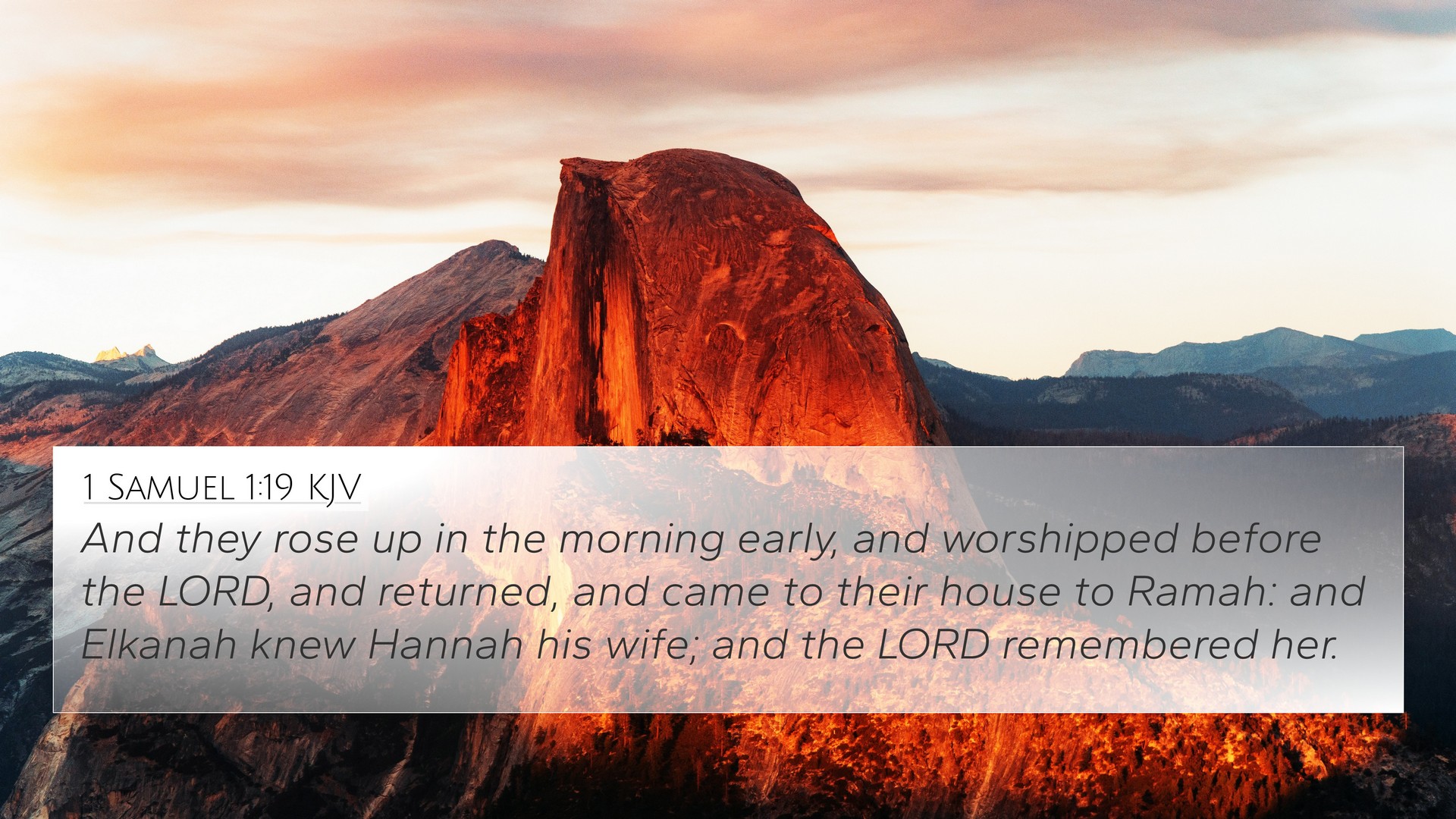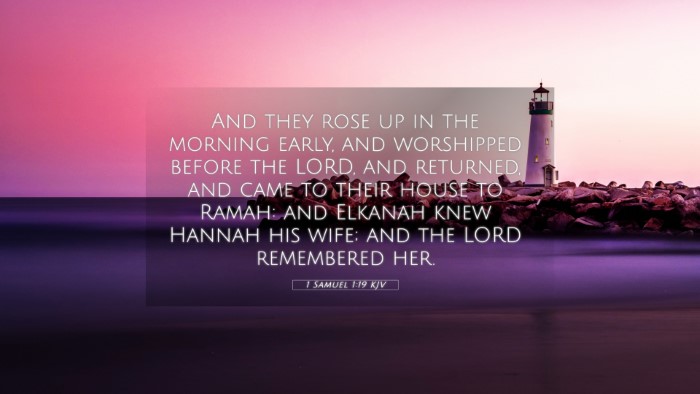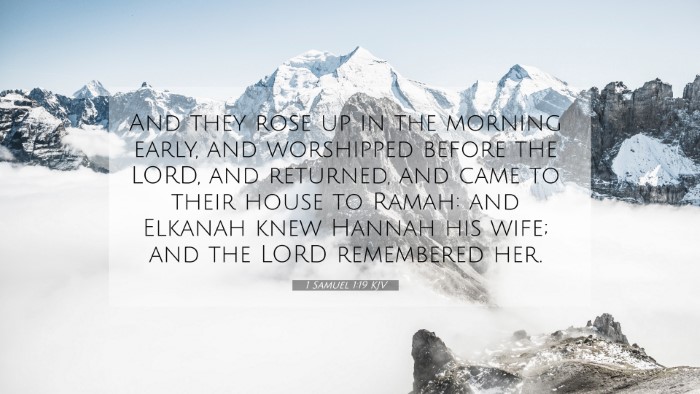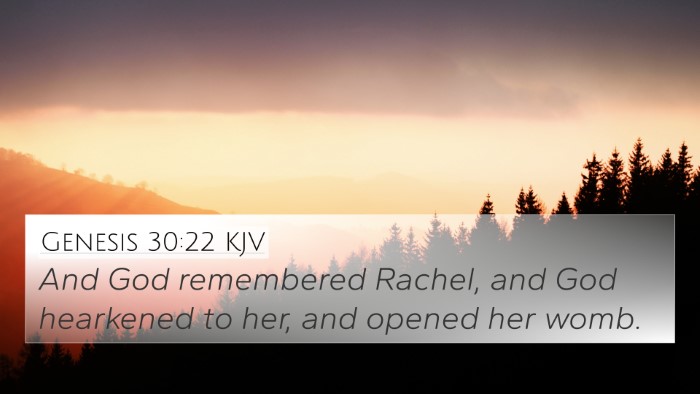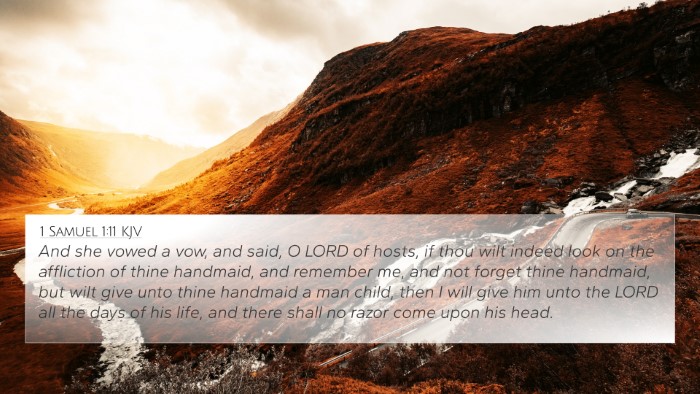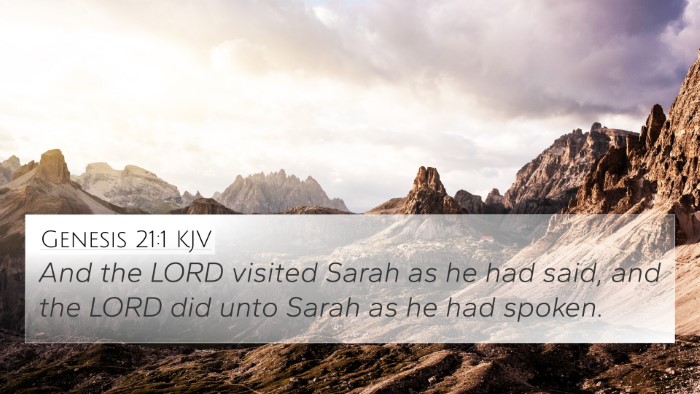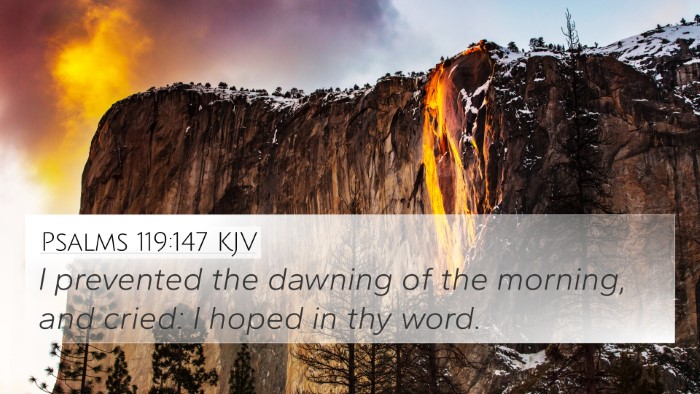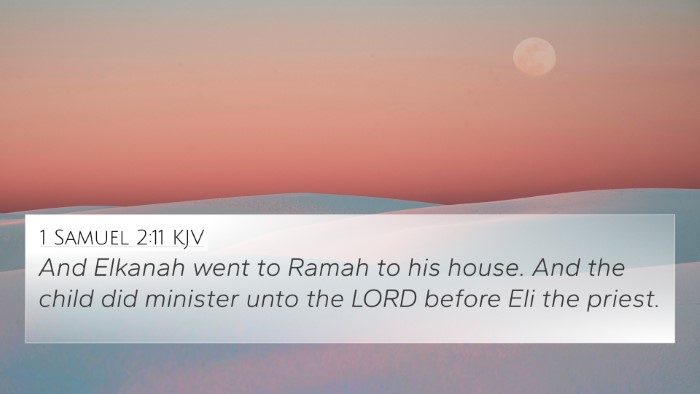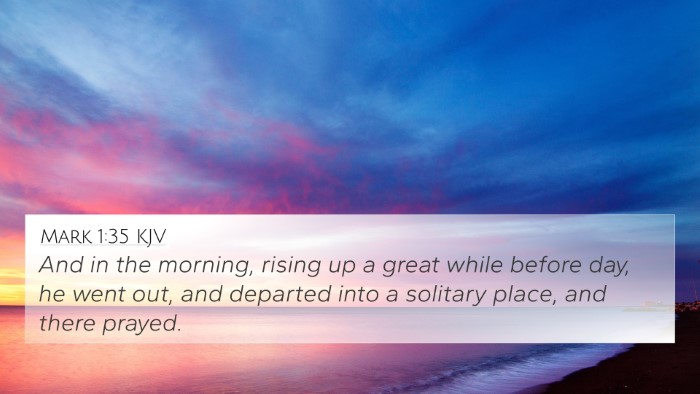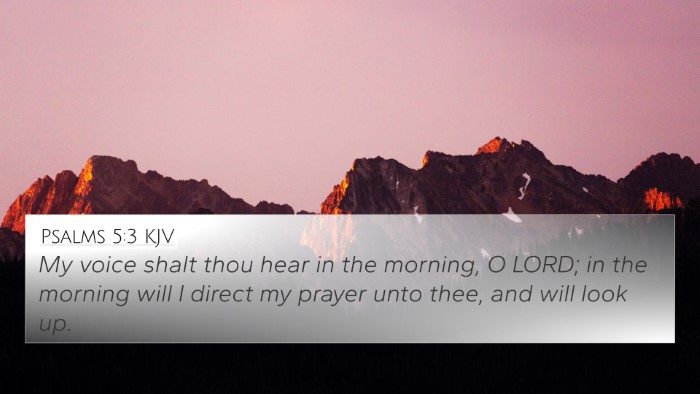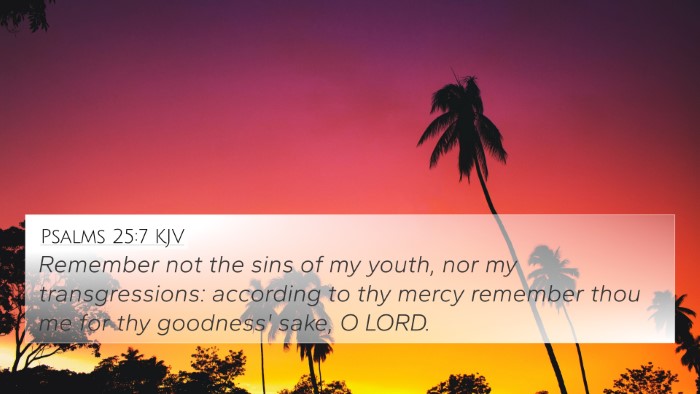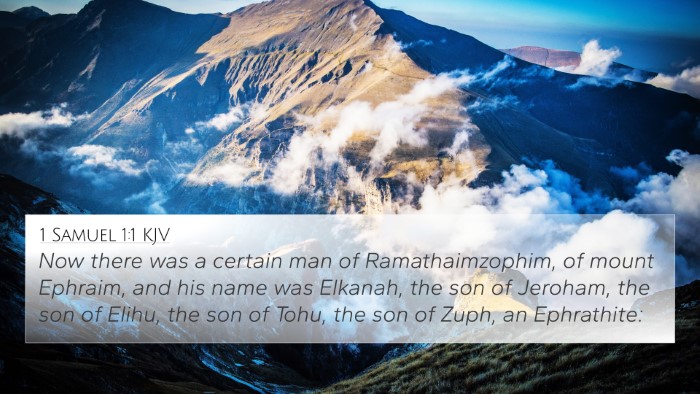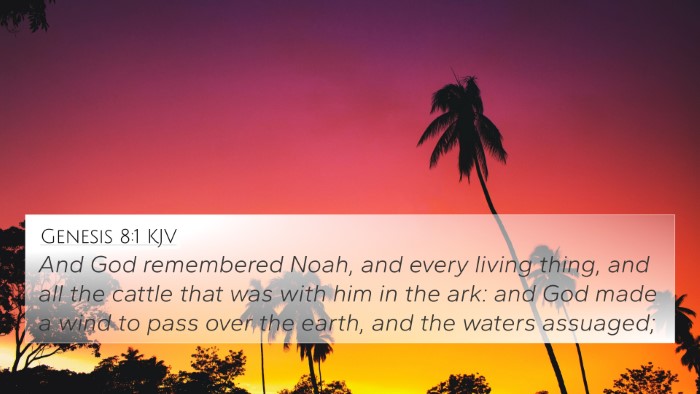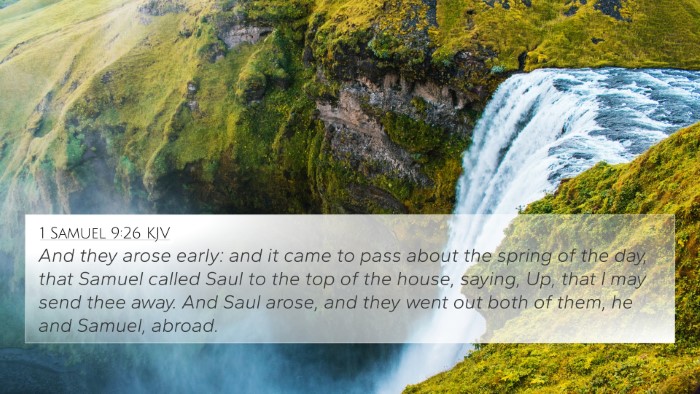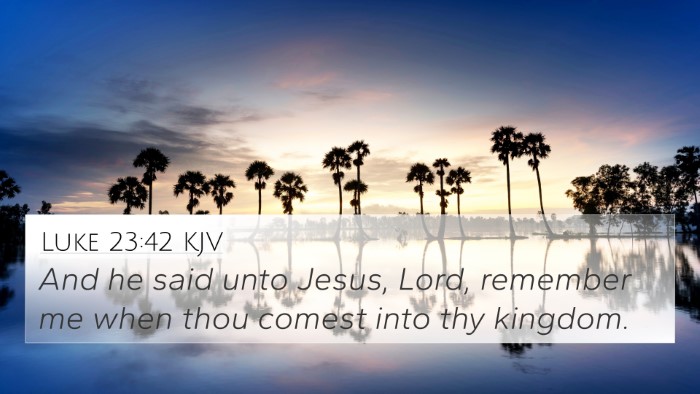Understanding 1 Samuel 1:19
Verse Context: 1 Samuel 1:19 states, “And they rose up in the morning early, and worshipped before the LORD, and returned, and came to their house to Ramah: and Elkanah knew Hannah his wife; and the LORD remembered her.” This verse is situated within the narrative of Hannah, who fervently prays for a son, demonstrating her deep desire and faith in the Lord’s promise.
Combined Insights from Public Domain Commentaries
This verse marks a pivotal moment in Hannah's life. The commentaries by Matthew Henry, Albert Barnes, and Adam Clarke provide rich insights into its meaning:
- Matthew Henry: Henry emphasizes the significance of worship in the morning, noting that Hannah and her husband, Elkanah, demonstrate a commitment to seek God first in their day. This act of worship reflects their faith and submission to the divine plan. Moreover, Henry draws attention to the phrase “the LORD remembered her,” suggesting that God's remembrance signifies His readiness to act according to His promises.
- Albert Barnes: Barnes focuses on the mutual dependency between worship and personal dedication. He notes that Hannah’s prayers were not only vocal but also heartfelt and sincere. The acknowledgment of God’s role in creating life brings to light the theological truth of divine involvement in human affairs. He elucidates the importance of Elkanah knowing Hannah as an indication of intimacy and fulfillment of marital obligations, aligning with the Hebrew tradition of procreation.
- Adam Clarke: Clarke provides an elaboration on the spiritual and emotional dimensions at play. He remarks on Hannah’s unwavering faith and the urgency in her prayer life. Clarke also highlights the connection between worship and receiving blessings, reinforcing how genuine worship can invite divine remembrance and intervention in the lives of the faithful.
Thematic Connections and Cross-References
1 Samuel 1:19 resonates with several other scriptures, illustrating interconnected themes of prayer, worship, and divine rememberance. Below are some pertinent cross-references:
- Genesis 30:22: "Then God remembered Rachel, and God listened to her and opened her womb." This verse parallels Hannah’s experience of God remembering her after fervent prayer.
- Exodus 2:24: "And God heard their groaning, and God remembered his covenant with Abraham, with Isaac, and with Jacob." This highlights God's faithfulness and His response to the cries of His people.
- Psalm 106:44: "Nevertheless, he looked upon their distress when he heard their cry." This verse emphasizes God’s attentiveness to His people's suffering and prayers, akin to what Hannah experiences.
- Luke 1:13: "But the angel said to him, 'Do not be afraid, Zechariah, for your prayer has been heard, and your wife Elizabeth will bear you a son...'" This shows a modern-day illustration of God answering prayers, reminiscent of Hannah's narrative.
- Isaiah 49:15: "Can a woman forget her nursing child, that she should have no compassion on the son of her womb? Even these may forget, yet I will not forget you." This verse reinforces God’s commitment to His people and His remembrance in fulfilling their needs.
- Romans 8:28: "And we know that for those who love God all things work together for good, for those who are called according to his purpose." This further affirms the belief in divine involvement, culminating in blessings as demonstrated in 1 Samuel.
- James 5:16: "The prayer of a righteous person has great power as it is working." Illustrating the potency of prayer, this verse reflects the foundation of Hannah’s hope.
Worship as a Foundation for Blessings
From the analysis above, it becomes evident that worship plays a crucial role in Hannah's life and experience. The act of rising early to worship God before returning home signifies a deep-seated commitment to faith over her circumstances. Worship focuses one’s heart and mind on God, establishing a strong foundation for receiving His blessings.
Conclusion: The Importance of Faith and Prayer
In summary, 1 Samuel 1:19 encapsulates the power of faith intertwined with worship and divine remembrance. The commentaries offer profound insights that highlight not only the historical context but also the applicable lessons we can learn today. In navigating similar personal or spiritual challenges, the narrative beckons us to maintain a posture of faith, persistent prayer, and worship towards God, who remembers and rewards those who earnestly seek Him.
